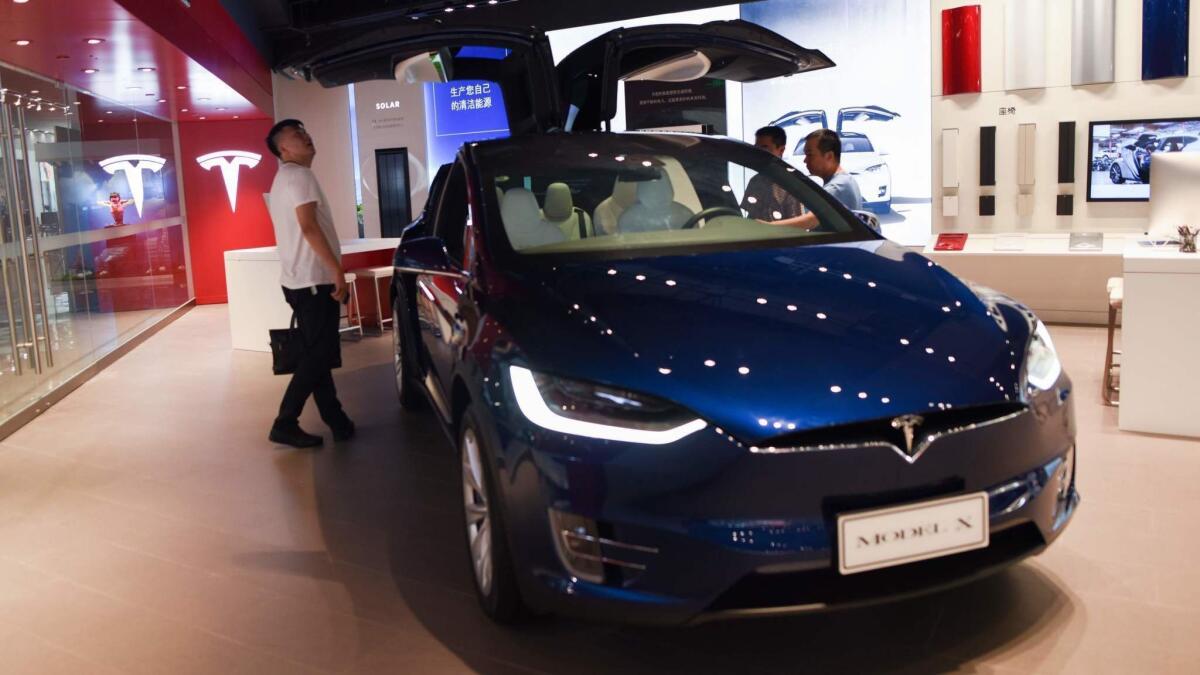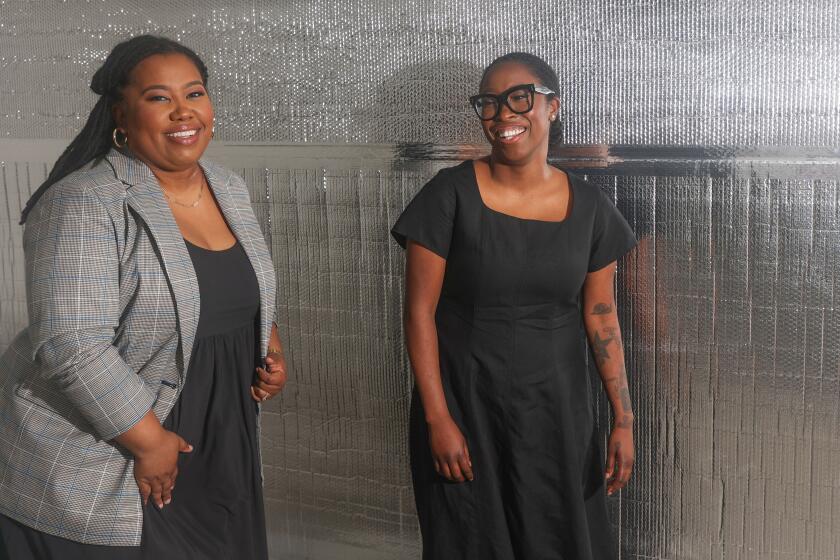Tesla’s China factory: Will it ever be built?

Elon Musk in 2015 told the Chinese news media that Tesla might begin producing cars at a new China manufacturing plant “within three years.”
Three years later, no plant has been built. Construction hasn’t even started.
But on Tuesday, Tesla and the municipal government of Shanghai signed a “cooperative agreement” to eventually build a Tesla automobile manufacturing plant in the city’s ultra-modern Pudong district, according to a news release from Shanghai’s municipal government. Ultimately, the plant would turn out 500,000 vehicles a year, primarily for the China market.
Details of the agreement are scarce. A Tesla spokesman said the company still must “get all the necessary approvals and permits” to proceed. After that, automobile production could begin in about two years, with planned full annual production of 500,000 vehicles a year to be reached four to five years from now.
But Tesla faces some big challenges before it will be able to produce half a million cars in China. And how the company, which has had numerous problems with its U.S.-based production facility, plans to get the China factory up and running is unclear.
Billions of dollars will be needed to build such a factory. The company also has plans to build factory lines for upcoming products including an electric semi truck, an electric pickup truck, and an electric crossover car. That will cost billions more. Money was not discussed in the Shanghai news release. No investments in the project or in Tesla were announced, although an agreement between Tesla and an industrial park developer was mentioned.
According to the release, “both parties will focus their cooperation on jointly promoting technology innovation and industry development.”
Tesla drops reservation system, opens Model 3 orders to anyone with $3,500. (No refunds) »
On Tuesday, Musk joined Shanghai Mayor Ying Yong at a signing ceremony, and they unveiled a plaque, the news release said, for a Tesla-Shanghai Electric Vehicle Development and Innovation Center.
Although Musk has said Tesla doesn’t need to sell more stock or take on more debt this year, analysts say the plans are impossible without massive new capital investments.
The China news “isn’t a real surprise,” said Efraim Levy, a stock analyst at research firm CFRA. “But it does mean they’ll need more cash. It’ll cost multi-billions to create another gigafactory,” the word Tesla uses for its manufacturing plants.
Tesla is currently struggling with production problems at its sole automobile assembly plant, located in Fremont. The company had announced plans to build 500,000 cars there by the end of this year, but plans to automate the Model 3 assembly line went awry and the company won’t come close to that figure this year. While it fixes the assembly line, it’s shifted some production outdoors to a tent.
Tesla’s China news emerged amid a growing trade war that has the global auto industry in a fit. Tit-for-tat tariffs — some already imposed, others about to kick in — are bound to challenge international supply chains. Worse, auto executives fear that price hikes due to tariffs will hurt automobile sales and corporate profits.
The trade war was triggered by the Trump administration, which argues that existing trade relationships shortchange U.S. industry.
Just days ago, Tesla raised prices on cars it exports to China by $20,000, after it got hit by China with retaliatory tariffs that total 40%.
But the tariffs and price hikes might not hurt Tesla much, according to Michael Dunne, CEO of ZoZoGo, which advises clients on electric and autonomous vehicles in China. Tesla cars are considered luxury items and status symbols in a fast-growing nation whose ranks of the well-off are swelling, with China accounting for nearly 20% of Tesla sales.
“People buying at that end of the market are highly price insensitive to begin with,” he said. “If they want to buy a Tesla they’ll buy a Tesla.” The price hike is simply an “irritation.”
That bodes well for future Tesla sales in China, if the plant is ever built. China has made clear it intends to dominate global electric vehicle production, including auto parts and software technology.
A source with deep experience in China’s auto industry told The Times that Tesla still lacks a required production license for a Shanghai factory. Obtaining such a license usually takes months to years, he said. It’s a political undertaking, and in this case would involve state-run auto companies who might not want Tesla as a competitor.
But a planned Tesla plant in China sends a strong signal that China is a major global player, the source said — and state-owned car companies could benefit from competition.
Tesla would own 100% of its China operations, which would be a first there. Currently, foreign automakers must set up a joint venture with a Chinese company to be allowed to manufacture in China.
Given Tesla’s manufacturing performance so far though, the 100% deal forces Tesla to take on all the manufacturing risk, without China or Chinese companies being blamed for production problems.
To manufacture in China, automakers have also been forced to give up intellectual property and reveal manufacturing techniques. Any such demands on Tesla have not been revealed. .
It’s also unclear whether Tesla will be required to pay an existing 15% tariff on cars made in China by foreign automakers. Tesla declined to comment.
Greg Anderson of Pacific Rim Advisors in Taiwan said the production-license process “won’t be straightforward. It never is.”
“Perhaps the Chinese have finally realized that it is to their advantage to have a more open auto market. But given the current climate with an impending trade war, I wouldn’t bet on it.”
Tesla’s future in China may depend on Chinese leader Xi Jinping. “If Xi truly does want Tesla, then Tesla will be there. He’ll crush whoever gets in his way,” Anderson said.
Tesla stock was up about 1% at noon Pacific time, to about $322.
UPDATES:
1:25 p.m.: This article was updated throughout with staff reporting and more details.
This story was originally published at 6:55 a.m.







